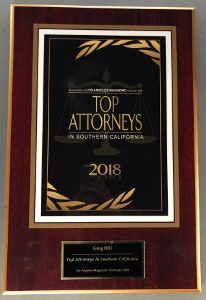Passing a bad check is tendering a check for goods or service, from a bank account that has insufficient funds to pay the full amount of the check. It happens every day, to the tune of millions of dollars in California alone. Even attempting to tender a check with insufficient funds is a crime. The payee does not need to receive the check and attempt to cash or deposit it.
The Reader’s Digest Version: Check fraud under Penal Code § 476(a) can be charged as a misdemeanor or a felony, depending upon the facts of the case and defendant’s prior criminal history, if any. If convicted of felony check fraud, one can be sentenced to up to three years in state prison before sentencing enhancements, if any apply.
It is a serious offense, one that can be prosecuted as a felony or a misdemeanor (“a wobbler”). The decision of how to charge it depends upon the circumstances of the fraud and the defendant’s prior criminal history.
There is no minimum amount below which a prosecutor is barred from prosecuting someone, however, if the check amount is $450 or less and the individual has no prior conviction for passing bad checks, forgery or petty theft when the conduct was passing bad checks or forgery, the case must be filed as a misdemeanor.

The maximum fine, if the case is filed as a misdemeanor, is $1,000. If the case is filed as a felony and there is a conviction, the judge is permitted to fine defendant up to $10,000 and sentence the individual to up to three years in state prison, although this is rarely done. Such consequences may not be the client’s only concern, however, as the “victim” may file a civil lawsuit as well to recover the loss.
Often, the person tendering the check made a simple oversight. Other times, the intention to defraud is more clear. District Attorneys look for certain tell-tale signs of this by seeing if the check was written on a new account, i.e. the check number is low or even the first check, or the check is written on a closed checking account. Other times, the person writing the check will intentionally make the amount of the check expressed in words not match the handwritten amount in words.
The defenses to a charge of violating Penal Code § 476(a) are rather simple and straight forward. First, there is the defense that you post-dated the check and the person tried to cash or deposit the check prior to the dated indicated on the check.

Next, there is the, “I honestly thought there were sufficient funds available.” This strains credibility unless the client can show that there were $200 dollars in the account when the check was written for $205. Simple good faith that there were sufficient funds usually does not work unless the client has absolutely never bounced a check before. Then the client can defend himself by explaining that what he or she is really “guilty of” is failing to accurately balance her checkbook (when it really mattered).
Third, there is the uncommon defense of “the bank made a mistake.” This is rare, but it should be explored to see if it applies, especially if your bank offers overdraft protection.
Fourth, and very uncommon, is the duress defense. This means someone threatened you with physical injuries or violence if you did not write the check. Economic duress is not such a defense (“I needed the food, so I wrote a check I knew would bounce.”).
Lastly, there is an unfavored defense, but it is that you told the payee that there were insufficient funds in the account and to wait a certain period of time. This is usually looked upon skeptically, unless the warning is in writing and the payee consents in writing (but who would do this?).
Most counties have a “Bad Check Diversion Program” that is typically eight hours long, but which requires you to make full payment to the victim of the insufficient check. “Diversion” means the client is diverted from the normal court process of proceeding toward trial. The client is given “a time out” to enroll in and complete the class. Orange County and Los Angeles County have such a program. Your attorney can arrange for you to enroll in and complete such a program, which usually requires a court order. The program does have an enrollment fee.
For more information about embezzlement, click on the following articles:
- What Is Embezzlement (Penal Code § 503)?
- Multiple Convictions for Embezzlement (Grand Theft) from Employer Proper When Takings Distinguishable
- Granddaughter Guilty of Financial Elder Abuse Through Embezzlement and Moving Grandmother out of Home
Contact Greg Hill & Associates

